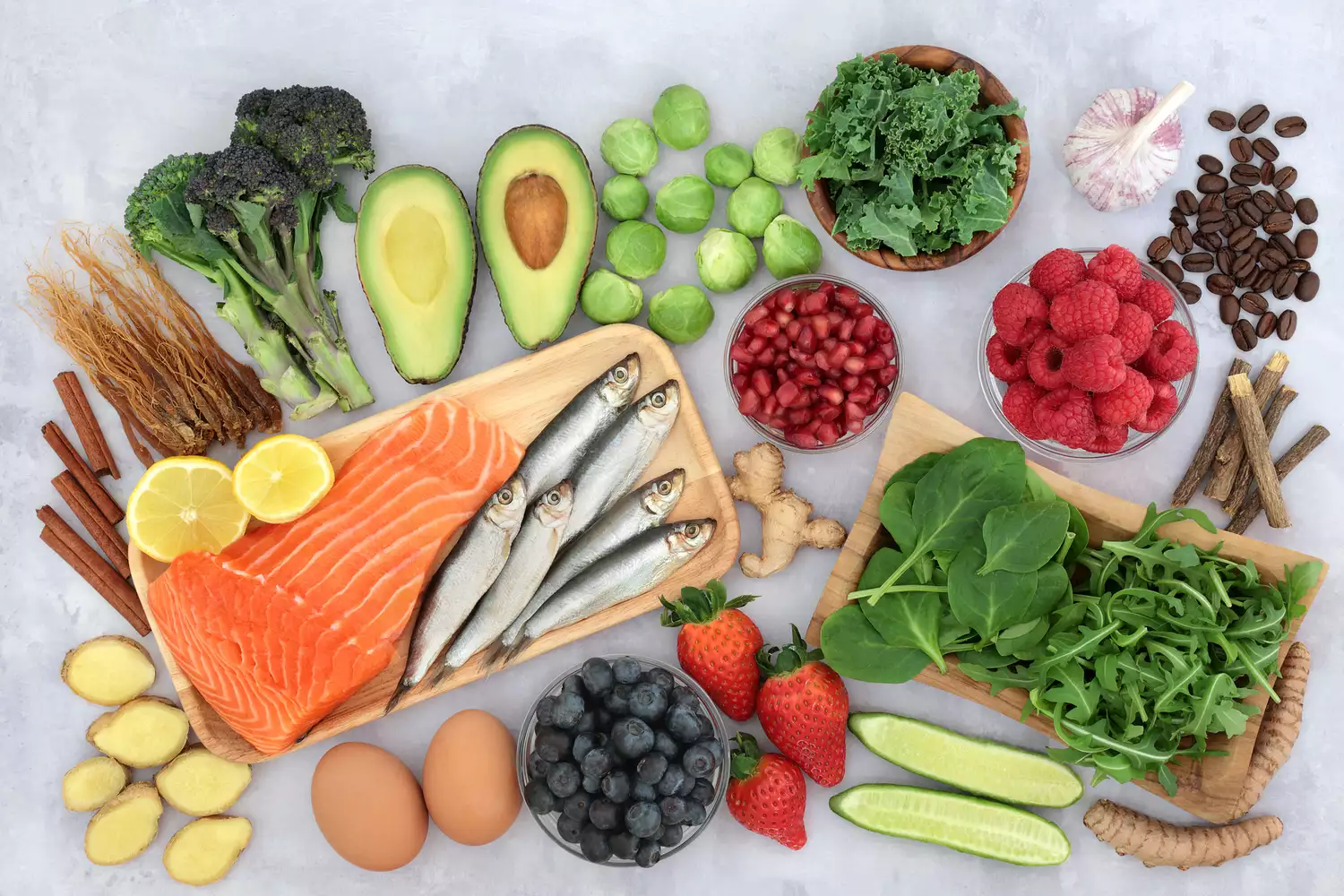
Many individuals embrace a vegetarian diet plan in an effort to improve their health or decrease their risk for disease. The advantages of a plant-based diet are well documented. However not all vegetarian diet plans are nutritious.
The type of foods you select to consist of in your meal strategy (and those that you pick to avoid) make a huge difference in the benefits you gain. A vegetarian diet plan filled with processed foods is less most likely to provide health benefits than a diet plan filled with healthy fruits, vegetables, vegetables and grains.
As you think about embracing this food plan, think about all of the benefits and drawbacks of a vegetarian diet to ensure it’s the right consuming prepare for you.
Pros
There are several types of vegetarian diet plans. The most typical is the lacto-ovo vegetarian, or somebody who prevents meat, poultry, and seafood however consumes dairy and eggs. Ovo-vegetarians consume eggs but avoid dairy, meat, and seafood. Lacto-vegetarians take in dairy but prevent eggs, meat, and seafood. These can all provide a range of advantages.
Minimized Disease Risk
On a healthy vegetarian diet, you are encouraged to consume whole grains, beans, fruits, veggies, nuts, and seeds– foods that are lacking in the diets of many people who follow a more standard food strategy. These plant-based foods supply your body with crucial minerals and vitamins that improve your health and decrease your threat of numerous chronic diseases.
For example, in a big mate research study assessing both vegetarian and vegan diets, researchers found that both groups experienced a lowered risk of cardiovascular diseases, cardiometabolic risk factors, and some cancers.1.
There is also some evidence that a vegetarian diet plan may help you to avoid conditions such as gallstones and kidney stones. A 2019 study published in the journal Nutrients followed over 4800 individuals and concluded that by reducing cholesterol levels, a vegetarian diet successfully reduced the occurrence of gallstone disease.2.
And a 2014 research study investigating the effects of numerous diets on kidney stone formation identified that a well balanced lacto-ovo-vegetarian diet can be protective versus the condition as long as there is appropriate calcium intake.3.
May Boost Longevity.
There have actually been a variety of research studies investigating the link between vegetarian or vegan diet plans and longevity. Some research studies have found that those who follow healthy plant-based diet plans live longer than those who consume meat.
A large accomplice research study published in 2014 found that vegetarians were 12% less most likely to pass away from all causes integrated compared to nonvegetarians.
However, results from research studies like these can be challenging to analyze. The 2014 associate research study included 73,000 people however they were all Seventh-day Adventists who typically take in no alcohol and do not smoke.1 These factors may have played a role in their longevity patterns.
Other research studies have examined the link in between plant-based diets and durability, with numerous finding a favorable association. However it can be tough to inform if it is the diet itself or associated aspects that boost longevity.
For example, those who pick a vegetarian or vegan diet plan typically practice mindful eating, exercise regularly, and handle tension with meditation or yoga. These practices may also contribute in providing the benefit.
Increased Food Variety.
The standard American diet plan is called an omnivore diet since no foods are omitted. Often, people who take in an omnivore diet get into the practice of eating the exact same foods day after day. The result is that they eat a fairly restricted variety of foods or types of food.
A standard American dinner normally consists of meat (such as a steak or pork slice), a starchy side meal (such as a potato or rice), and maybe a vegetable. Dairy items are often used as active ingredients, side meals, or toppings.
On a vegetarian diet plan, however, lots of conventional foods are not compliant. When you start this diet plan, you may have to get creative and experiment with foods that are not familiar.
Obviously, just selecting to go vegetarian does not ensure this benefit. A vegetarian can likewise enter into a food rut and eat the exact same (unhealthy) foods every day. Switching to a vegetarian diet plan may offer the inspiration to experiment with new much healthier food options.
Improved Weight Control.
Plant-based eating is typically related to slimming down. Research studies have revealed that those following a vegetarian diet generally consume less calories than an omnivore diet. Scientists have likewise discovered that the most restrictive variation– the vegan diet plan– is also most likely to have the lowest calorie intake.4.
A broad evidence review published in 2017 found that plant-based diet plans are an effective tool in the management and avoidance of obese and obesity.5.
If you are trying to reach or preserve a healthy weight, the lower day-to-day calorie consumption connected with vegetarian or vegan consuming might assist you accomplish your goal.
Offers Complete Nutrition.
Getting the advised consumption of both macro and micronutrients is easier on a vegetarian diet than it is on the more limiting vegan diet plan. And while there are still some issues about nutritional shortages on a vegetarian diet plan, there are considerable resources available to help you satisfy your nutritional requirements.
The USDA and the U.S. Department of Health and Human Services consisted of a Healthy Vegetarian Eating Pattern as part of their 2020– 2025 Dietary Guidelines for Americans.6 The guide supplied suggestions for the intake of numerous food groups such as green leafy vegetables, starchy vegetables, vegetables and beans, soy items, and others.
Recommended amounts are provided for everyday caloric intakes ranging from 1,000 to 3,200 calories each day. By following this guide, you are most likely to get the everyday vitamins, minerals, and macronutrients needed for a healthy body. Like any diet plan, you might fall brief of nutrients if you don’t take steps to consume a well balanced diet.
Minimized Food Costs.
Choosing a vegetarian diet may help you to minimize your food costs. But your total food expenses will eventually depend upon the foods you choose to consist of in your meal strategy.
Meat and seafood are typically expensive and for numerous are a major part of their overall grocery bill. Convenience foods and fast foods that are not compliant on a vegetarian diet plan can also be expensive. When you remove these foods from your diet, you eliminate the significant food costs that are associated with them.
Bulk grains and beans are usually economical. And if you buy produce in season, you can cut expenses also. Off course, vegetarian-convenience foods and meat alternatives can be costly, however they are most likely to cost less overall than a diet plan rich in animal-based products.
Friendly Environmental Impact.
There is increased issue in the ecological community about the effect of livestock and animals farming practices on the earth. So, some people choose to get rid of meat and eat a vegetarian diet plan since they feel it is much better for the world.
The farming of plants to produce fruits, veggies, nuts, seeds, and grains requires fewer land and water resources than the production of meat, poultry, and dairy. And cows produce more greenhouses gasses than plants, which leads some to think that getting rid of meat and dairy from the diet helps to lower the danger of global warming.
Numerous research studies have actually even recommended that the vegan variation of a vegetarian diet is better for the planet than other diet plans, consisting of the popular Mediterranean diet.7.
Ethical Treatment of Animals.
Since no animals are killed to produce vegetarian foods, numerous pick this diet plan due to the fact that of issues about animal cruelty. Those who select to consume eggs and dairy may still have to challenge problems regarding the treatment of chickens and cows.
Animal rights activists prefer that consumers pick a vegan diet to promote the ethical treatment of animals. The less-restrictive vegetarian option still minimizes the overall effect on the animal population.
Cons.
Even though a vegetarian diet uses some substantial benefits, there may be disadvantages.
Possible Nutritional Deficiencies.
A well-rounded vegetarian diet can supply appropriate nutrition. There are specific key nutrients that are usually found in animal foods that may be lacking in a vegetarian diet plan if the diet plan doesn’t consist of a variety of healthy foods.
Zinc: Studies have shown although zinc intake tends to be lower in vegetarians, their bodies adjust to lower levels through increased absorption and retention of the mineral.8 Researchers likewise note that a well-planned diet can offer appropriate zinc through plant-sources such as entire grains, tofu, tempeh, legumes, nuts and seeds, fortified breakfast cereals, and dairy items.
Vitamin B-12: Vitamin B-12, or cobalamin, is found in beef, liver, fish, shellfish, chicken and other meat-sources– foods not taken in on a vegetarian diet. Eggs contain vitamin B12, as well as some strengthened breakfast cereals and dairy products. Researchers have actually discovered, nevertheless, that supplementation might be needed for individuals who follow a vegetarian or vegan diet plan.9.
Vitamin D: Some researchers and health professionals have raised issues about vitamin D levels in vegans and vegetarians. 2 excellent vegetarian sources of vitamin D consist of maitake mushrooms and Portobello mushrooms.
Calcium: Vegetarians who do not consume dairy might need to prepare meals carefully to get enough calcium. However green leafy vegetables, white beans, pulses, sesame seeds, and some dried fruits are rich in the nutrient. Many nut milks and brands of orange juice are also fortified with calcium.
Omega-3s: Lastly, a vegetarian diet can be lacking in omega-3 fatty acids. Soy, pumpkin, flax, or chia seeds and walnuts are good sources of omega-3.
It is essential to read nutrition labels and select foods which contain key vitamins and minerals to avoid dietary deficiencies.
Less Food Choices.
If you are used to taking in a traditional diet that includes meat, seafood, and other animal products, you may discover the vegetarian diet plan to be limiting at. It takes time to change to the eating design if you are used to constructing meals around bacon at breakfast, deli meats at lunch, and beef or chicken at dinner.
However there are a wide array of resources to assist you discover to discover or create gratifying meals without meat. Most vegetarians discover that there are a lot of choices not just in grocery stores and at dining establishments, but even when dining with friends and family in private homes. Plant-based meals are typically encouraged by health specialists for meat-eaters, so it is not unusual to see hearty dishes that are vegetarian-friendly.
Lowered Satiety.
Studies have actually found that vegetarian diets tend to be lower in calories, fat, and protein than omnivore diets.10 Foods that are greater in fat and protein help you to feel full and pleased after consuming.
Some carbohydrate-rich foods such as fruit or improved grains are absorbed faster and might leave you feeling hungry soon after a meal or snack. As an outcome, when you change to a vegetarian diet, you might feel less pleased and hungry more often.
But cautious food options can assist boost satiety. Hearty beans and entire grains are high in fiber and assist you to feel complete. Treats that consist of nuts or seeds likewise offer protein and fat to increase feelings of complete satisfaction after consuming.
Less Convenient.
Although plant-based foods are getting easier to find, those who follow a stringent vegetarian diet plan will still need to read ingredient lists, particularly if they select to consume processed foods. Foods that you may presume to be devoid of animal by-products may contain gelatin, whey, casein, or other foods that are non-compliant.
Eating in restaurants can also be a challenge, especially when you are first adapting to a strict vegetarian diet plan. While some dining establishments provide meat-free meals, the meal might be made with dairy or other animal items. Vegetable soup, for example, may be made with chicken or beef broth, or even vegetable broth that utilized an animal bone for flavoring.
Eventually, you are most likely to discover restaurants with lots of plant-based certified meal options. When dining at someone’s home, bring a vegetarian dish that you can delight in and show others.
Not Always Healthy.
While consuming a vegetarian diet can supply health advantages and help you preserve a healthier weight, it is not an assurance. There is an increasing number of heavily processed vegetarian foods. Lot of times, these foods include more fat, sodium, added sugar, and calories than their standard equivalents.
Counting on these convenience foods causes the very same restricted food palate and health concerns connected with the conventional American diet plan.
One study that examined vegan diets discovered that those who followed a diet plan that included whole grains, fruits, veggies, nuts, beans, oils, tea, and coffee had a substantially lower threat for heart illness. Those who picked a less healthy version of the diet, including sweetened drinks, fine-tuned grains, potatoes, fries, and sweets had a higher danger.11.
Direct exposure to Chemicals.
There has actually been some issue in the health community about the increased risk of exposure to herbicides and pesticides among those who take in a plant-based diet plan.
Some research studies have revealed that since fruit, vegetables, and grains are often farmed utilizing these chemicals, vegetarians may be more exposed to pesticide residues than the general population due to particular dietary practices.12 However, even though exposure to pesticides might be higher, other scientists have found that it is still most likely to fall within safe standards.13.
In addition, it is not clear if the restricted exposure has more capacity for harm than direct exposure to hormonal agents or antibiotics sometimes found in animal foods or if the possible exposure minimizes the benefits gained by consuming a plant-based diet plan.
A simple solution to this issue is to purchase natural foods. Nevertheless, these items are frequently expensive and might not be available in all locations. If natural products are not an option for you, health specialists encourage that you clean fruits and vegetables carefully to restrict exposure.





